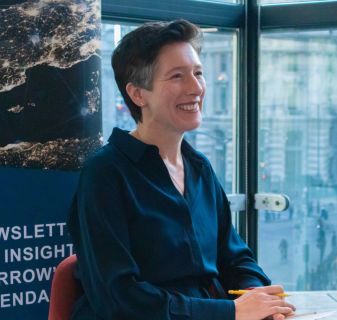PR and research – could we do better?
The differences between researchers and PRs can lead to missed opportunities for communicating interesting research and waste resources, so isn’t it time we tried to do things better?
Tell a PR you have budget for research and their eyes will light up – it’s a great opportunity for a decent news line and to deliver some coverage. By contrast, everyone from academics to product developers to politicians are interested in research because of what it informs, whether challenging a theory, refining a product, or understanding how people will vote.
This difference between researchers and PRs can lead to missed opportunities for communicating interesting research and waste resources, so isn’t it time we tried to do things better?
Many organisations undertake a lot of research – large scale customer surveys, investigations into how products are used and market reviews, to name just a few. Although some of the research is confidential, much has PR potential. However, a PR often hears about new research only once it’s completed and the research team want to launch it.
With often high expectations for coverage, it’s unlikely anyone thought about PR when the research was planned or undertaken. This means results are often harder to publicise. Research questions may have been worded using technical language, the methodology may mean findings can’t be turned into the percentages journalists love so much, or research may have been completed a long time ago and be considered out of date by the media.
Yes, researchers and PRs have different priorities and skills. But working together more closely can benefit everyone and, most importantly, help to save time as well as money. As a specialist education consultancy, our clients don’t have consumer-sized PR budgets, but we’ve found there are some key things organisations can do to use research more effectively for PR.
Organisations should make research less siloed
Creating a cross-organisation research group with senior leadership backing means everyone involved in research activities (including PRs) can keep up to date. For PRs, it means we can influence how the research is planned and undertaken, advise colleagues on its potential for PR, and have longer to plan how best to launch the research and generate coverage. Susan Higgins, Head of Communications at Edge Foundation explains:
“Data that is interesting to one business isn’t necessarily relevant to a wider audience, there needs to be a hook that connects it to the news agenda. PRs should be involved from the start to ensure a story can be crafted from the data. The most successful research stories easily answer the ‘why now?’ question but they also provide an element of surprise, or polarisation, that grabs attention from the off.”
PRs should develop their understanding of research methods
As well as getting involved much earlier, whether inhouse or agency side, PRs need to know their quantitative from their qualitative research methods, and the pros and cons. It’s important to be able to understand the implications of the methodology for how the findings and implications can be communicated.
For surveying, PRs need to understand the limits of statistically sound samples (there’s some useful information on the Market Research Society website). If it’s available, draw on internal research expertise to get advice on writing questions for polls or tap into the expertise on offer from MRS registered polling companies.
Be aware of poorly designed research
Beyond developing research skills, PRs also need to be ready to provide constructive challenge when we feel research is not robust. I’ve found a common issue can be sample size. It may be okay for internal research to rely on the opinions of 90 customers, but it’s not statistically sound and no journalist would be interested.
Squeeze the value from research
Many PRs are switched on to creating integrated campaigns where those leading on marketing content and SEO can also use the research findings for PR. But there are lots of other ways to get maximum value from research. The sales team can share the findings with leads, you can provide the content for a webinar, or the research can be shared with existing customers to support customer retention.
A more holistic approach to research and PR is needed, and makes financial sense too. My eyes will always light up when a client talks about commissioning new research. But now I also ask them about their longer-term plans for research and how early on they involve PRs.
Anna Pedroza is director of Pedroza Communications, a specialist consultancy supporting the education sector, and a CIPR Chartered PR Practitioner.

.jpg&w=728&h=90&maxW=&maxH=&zc=1)
